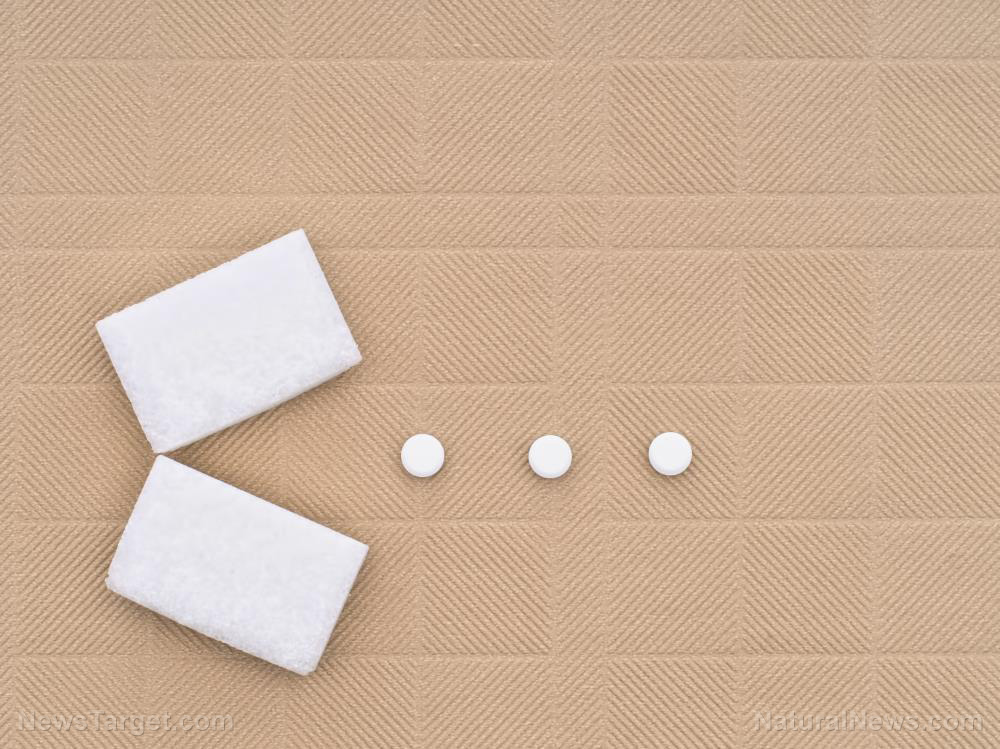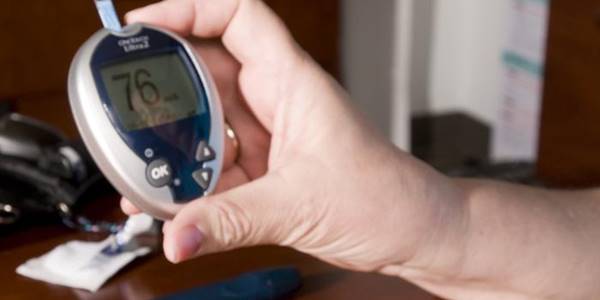The dangers of aspartame explained
01/11/2019 / By Zoey Sky

Whether you have diabetes or you’re trying to lessen your sugar intake, chances are you’ve already replaced table sugar (sucrose) with an artificial sweetener called aspartame. This sugar substitute has fewer calories, but studies have shown that the use of aspartame also comes with various health risks.
What is aspartame and why is it bad for you?
A popular type of artificial sweetener, aspartame is often used as an alternative to table sugar. Since it is at least 160 to 220 times sweeter than sucrose, you’ll use less aspartame when preparing food. Some people mistakenly believe that this means they can use as much aspartame as they want, especially if they have a sweet tooth.
However, manufacturers use aspartame to create different kinds of “low sugar” or “zero calorie” beverages, candies, dairy products, and jellies.
In the 1970s, a study revealed that an artificial sweetener called saccharin caused cancer of the bladder (urinary) in laboratory rats.
But the studies that followed suggest that the use of saccharin did not have the same results in humans. Because of this, the Food and Drug Administration (FDA) changed the safety label of saccarin from “hazardous” to “generally recognized as safe.”
While this seems like good news, take a moment to reconsider the use of any artificial sweetener. In a separate study, Dr. Robert Walton reviewed various research studies conducted on aspartame. The findings showed that out of the 166 studies analyzed, 74 were funded by companies that produced aspartame. It shouldn’t come as a surprise that the results of all 74 studies say that aspartame is safe for human consumption.
Meanwhile, 92 percent of the 92 independently funded studies revealed that there were health risks linked to the consumption of aspartame. These contradicting results highlight the fact that the authenticity and conflict of interest in numerous studies should be reconsidered.
Aside from an increased cancer risk, studies are still trying to confirm some of the side effects of aspartame, which may include:
- Convulsions/Seizures
- Depression
- Dizziness
- Headaches
- Memory Loss
- Mood Changes
People who use aspartame also report digestive problems such as abdominal pain, nausea, and vomiting. A lot of individuals who consumed products made with the artificial sweetener also reported symptoms such as generalized cramps, joint pain, and numbness in the legs.
The results of another study that involved 200 people with migraines determined that participants who consumed aspartame suffered from more headaches compared to the rest of the volunteers.
Aspartame is also bad for individuals who have been diagnosed with phenylketonuria, a genetic disease. If you have phenylketonuria, your body is unable to break down phenylalanine. This substance can be found in aspartame. If a child with phenylketonuria doesn’t limit their intake of aspartame, they may suffer from abnormal brain development. (Related: Bombshell study shows aspartame depletes neurotransmitters in the brain, makes brains vulnerable to chemical damage from food and vaccines.)
Even if the FDA has deemed aspartame as “generally recognized as safe,” individuals who have depression, mood disorders, or phenylketonuria should avoid using the harmful sugar substitute. Instead of jeopardizing your health by consuming aspartame, follow a healthy diet and use safe and natural sugar substitutes instead.
Natural substitutes for aspartame and sugar
Research is ongoing to determine the negative side effects of aspartame. If you want to follow a healthier diet even if you have a sweet tooth, consider using these natural sugar substitutes instead of aspartame.
- Agave nectar
- Blackstrap molasses
- Fruit juice (natural and organic)
- Honey
- Maple syrup
- Stevia leaves
Like other beverages and foods, you still need to limit your consumption of these “natural” sugar substitutes since they have a lot of calories and little to no nutritional value.
Read more articles about this harmful artificial sweetener at Aspartame.news.
Sources include:
Tagged Under: artificial sweeteners, aspartame, cancer risk, ingredients, saccharin, studies, sugar alternatives, sweeteners, toxic food, toxic ingredients



















